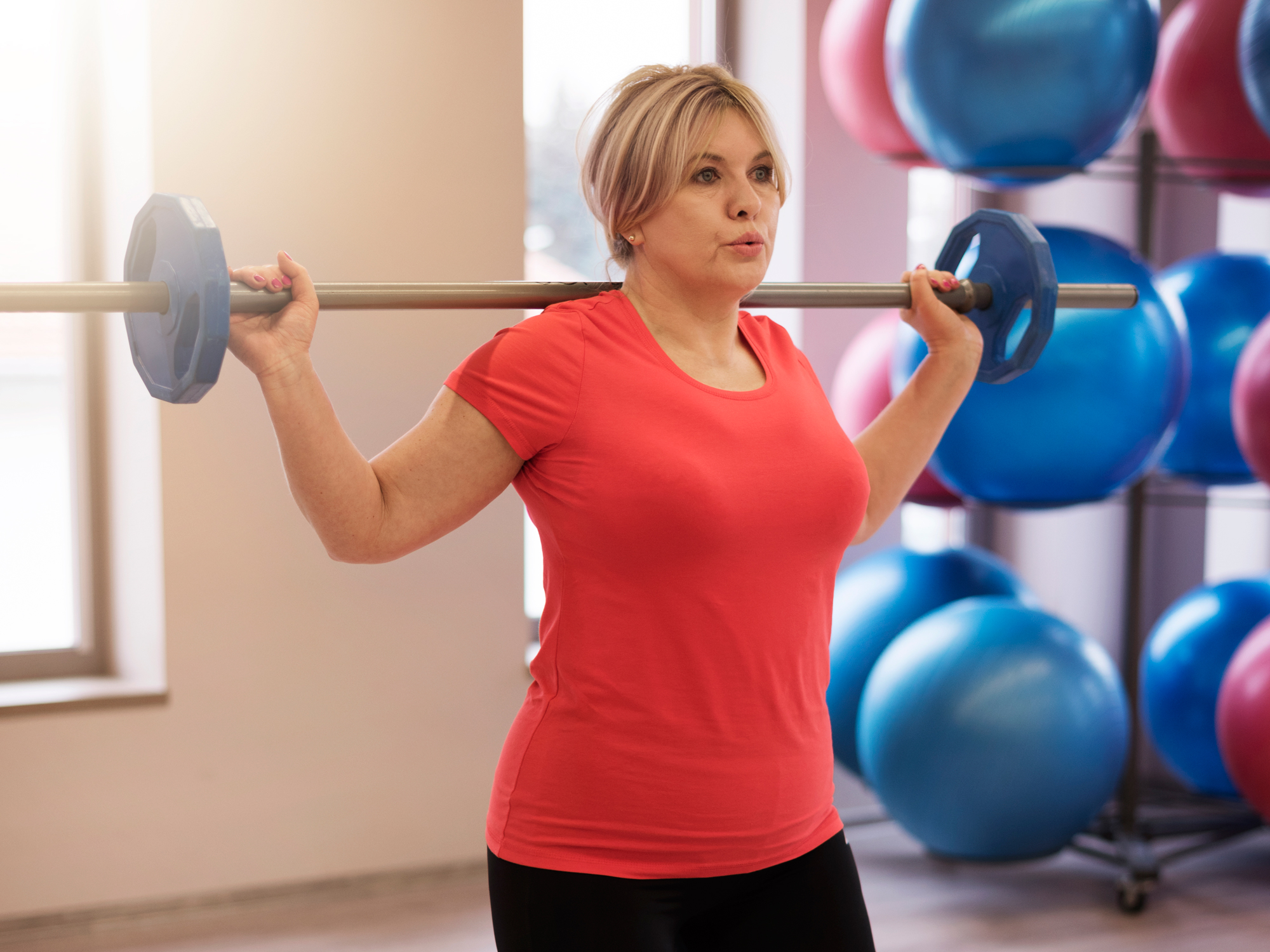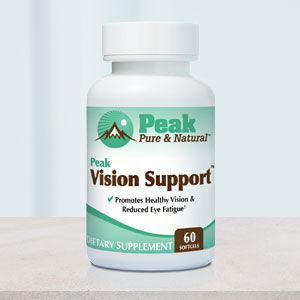Get Easy Health Digest™ in your inbox and don’t miss a thing when you subscribe today. Plus, get the free bonus report, Mother Nature’s Tips, Tricks and Remedies for Cholesterol, Blood Pressure & Blood Sugar as my way of saying welcome to the community!
Get the body you want and bones you need

Did know aerobic activity could make you fat?
A study in the Journal of Strength and Conditioning Research had 81 previously sedentary premenopausal women walk 30 minutes three times a week without changing diet. The subjects showed no real weight or fat mass losses overall…
However, 55 of the 81 women were labeled as compensators and gained fat during the 12-week study. This is not typically a desired outcome.
Let’s say through diet and maybe exercise you lose weight. If a large percent of that weight is lean muscle your metabolism will slow. The rate that you burn calories at rest, and while doing everything else you do all day, will decrease.
This sets you up for weight gain in the future. Unfortunately, it’s like a two-for-one. You don’t just gain back what you lost. You get back more.
The only way to offset your newly slowed metabolism is to exercise more and eat less. In fact it’s well known that successful weight maintenance programs include more activity than weight loss programs. Forever. Your ever-plummeting metabolism will make you tired and still require fewer and fewer calories. Typically women both diet and exercise diligently for a short time and then end it and hope it works out for them. That’s a formula for weight cycling up every time it happens.
There’s a better way not to “weigh less” but to weigh ideal and look like you weigh less. You can stop being a slave to the scale and start to focus on your health and your happiness. You shouldn’t have to check with the scale in the morning to find out if you’re happy. Stinky shoes and more laundry are a better gauge.
If you must measure something, measure your inches and your ability to lift weight. The blessing of strength training for a woman with weight to lose is that you will be more successful from the beginning than any time you’ve ever started aerobic exercise.
Your after-50 fitness formula includes a nutrient-rich, satisfying diet, proper aerobic activity and a good dose of the right resistance training. Dieting alone may result in weight loss, temporarily. The weight tends to be muscle.
The downside of weight training
If you’re a scale slave there is bad news. Resistance training will blunt your weight loss.
A 150lb woman who strength-trains, however, is more likely to wear a smaller pair of pants than a 150lb woman who doesn’t. Proportions will change like they do not with aerobic-only exercise.
Despite the study mentioned earlier, you could lose weight or get slimmer temporarily with aerobic-only exercise if you’re not overeating. But the results make you skinny-fat. Studies show you will lose strength and bone density if you only do endurance exercise. Lean, light and fragile is not a good combination.
Osteoporosis and osteopenia refer to low bone density that puts you at greater risk for fractures. Sarcopenia is loss of lean muscle tissue associated with aging. It’s not inevitable but it is more probable if you don’t lift and eat in favor of muscle. Dynapenia is a loss of muscle strength with aging. Sarcopenia and dynapenia set you up for risk of falling. Osteoporosis and osteopenia set you up for fractures if you do fall. You, at 50, may be overconfident about your fall risk. Yet, even your forgotten calf muscles predispose you for falls. At middle age a woman’s fall risk associated with weak soleus muscles increases. The soleus is the calf muscle underneath the larger gastrocnemius muscle. One of the only ways to work it is to do seated heal raises.
Your habits now determine what happens both now and in future decades. If your muscles go bye-bye you don’t get them back easily. It’s not impossible. The deck is just stacked against you.
Once you passed age 35, strength training became truly indispensable for maintaining muscle mass–along with adequate protein intake and the right post-workout nutrition habits. If that ship has been departing without you, it’s time to reevaluate your exercise routine and A-list weight training in your post-50 party plans.
Here’s the irony of the strength training gender bias. Men who exercise tend to spend more time lifting. Women who exercise tend to find aerobic activity more appealing. Women need strength training more than men. Overall you’re smaller, weigh less, and when you lose estrogen you lose bone at an even faster rate. Plus you’re more likely to live longer, losing little breadcrumbs of bone along the way. Weight rooms should be designed to appeal to women 35 and over and, in particular, 50 and over! Find a gym that feels comfortable or make one at home.
Your first rodeo with weight training might be a group fitness class. It’s a natural if you’re already comfortable in that environment. It’s potentially a good introduction but don’t hang your weight gloves on it. Group strength training classes with high repetitions won’t help you lose fat or gain lean muscle. High repetitions is defined as anything that you can do 15 or more times. Multiple sets of higher reps (at lower weight) do not have the same effect on fat, bones, or muscle, as sets of lower reps (of higher weight).
Editor’s note: Regain your health and enjoy a full, vibrant life by defeating the real culprits of premature aging and sickness — excessive, damaging acid in your body! The truth is when you’re alkaline, wellness thrives and sickness takes a dive. Click here to discover The Alkaline Secret to Ultimate Vitality!














